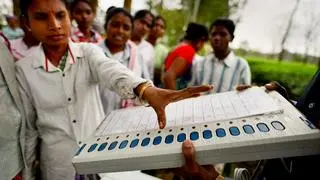It’s almost 10 years since the “elephant man” clinical trial incident took place in Northwick Park Hospital, London. Six men on early — stage trials of an experimental cancer and auto-immune drug ended up with disastrous consequences including a bloated head, organ failure and one of them eventually lost his toes and fingers.
Last week, a healthy volunteer died in France following early trials on an experimental painkiller that left five others hospitalised.
Both incidents were early-stage trials on a drug being exposed to humans for the first time. But their occurrence in countries, despite stringent rules and homogenous populations, bring home key messages for a melting-pot like India.
In India, with its different languages, literacy and economic conditions, protecting the patient participating in a clinical trial becomes that much more difficult, as it is important. Clinical trials involve several levels of testing medicines on animals and humans before a drug is marketed. And they are an important avenue to bring in new drugs and medicines specific to the country’s healthcare needs.
But the segment came in for intense scrutiny following a case filed in the Supreme Court. And under its watch, the Union government tightened the regulatory framework, including bringing in a three-step approval process for trials done in India. It also strengthened the consent process with an audio-visual system to record the consent of a volunteer or patient participating in a trial and outlined norms for compensation, in case of injury or death.
In the last three years, the government and industry have walked some distance in addressing these concerns, but some issues still need to be resolved. For instance, are all the drugs tested in India marketed here too? And do people who participate in drug trials get the medicine free or at reduced prices for the rest of their lives (after the trials), ask patient-group representatives.
One of the most difficult issues to resolve continues to be making that link between the trial drug and death or injury of the volunteer/ patient (see box).
Some positivesAnd that leads us to the question of a redress mechanism for the volunteer who disagrees with the compensation assessment made by the different committees scrutinising the trial.
Nevertheless, there has been some ground covered on streamlining clinical trials. For example, last year saw an increased number of 25 Subject Expert Committees (in various therapeutic areas) to evaluate clinical trial applications. The task now is to standardise their functioning, says Suresh Menon, with the Indian Society for Clinical Research.
Other developments include the plan for pre-submission meetings between the applicants and the regulatory office, for a better understanding of the trial and what it sets out to achieve.
Industry representatives seek more clarity on the definition of “vulnerable” people who need to be put through audio-visual consent, for instance. And the possible cap of three trials allowed per investigator, which industry feels does not take recognise the varying capabilities of researchers or doctors and the cities and infrastructure they operate in.
Patient voiceWith compensation hinging on linking the death to the trial, it is clear that the patient or volunteer needs to have greater participation in the deciding process.
Generic manufacturer Locost’s S Srinivasan is in favour of an autonomous appellate body for patients to seek redress, if they disagree with the compensation assessment.
But clinical research expert Shoibal Mukherjee points out that the redress mechanism needs to be scientific and transparent.
There needs to be a clear explanation on why someone is given compensation or not.
In fact, says Amar Jesani, Editor with the Indian Journal of Medical Ethics, patients should be involved much earlier, when the discussion is taken up for compensation.
“You cannot have a procedure that has no space for the victim,” he says, adding that medicine and medical research will be better off if it is transparent.
Only then will incidents like the France and the UK trial disasters not end up as “ammunition” against clinical trials, but work instead to reinforce protection of the volunteer who participates in a trial towards a better medicine.







Comments
Comments have to be in English, and in full sentences. They cannot be abusive or personal. Please abide by our community guidelines for posting your comments.
We have migrated to a new commenting platform. If you are already a registered user of TheHindu Businessline and logged in, you may continue to engage with our articles. If you do not have an account please register and login to post comments. Users can access their older comments by logging into their accounts on Vuukle.